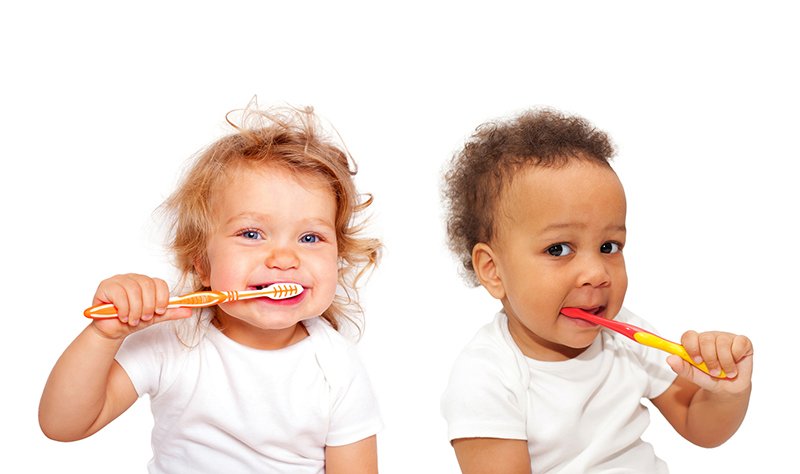Whether they’re in the “Terrible Twos”, the “Tantrum Threes”, or the “Fearsome Fours”, caring for a toddler’s teeth is a combination of first-time experiences & learning. Here are a few tips to get you started on ensuring healthy smiles for your child at this precious & chaotic age!
Time for First Visit to the Dentist
The American Dental Association recommends that a child visit the dentist for the first time before their first birthday. A child doesn’t have to have their teeth to need a dentist. Oral health is about gums & other soft tissues too! Plus, the earlier you bring your child to the dentist, the more comfortable they will be with the concept once they get older & more willful & opinionated.
Avoiding Bottle Rot Tooth Decay
While sugary drinks or treats can put an end to a tantrum or soothe a child at naptime or bedtime, they can spell trouble for teeth. “Bottle rot” is an unlovely term for when a child gets tooth decay from too much time drinking sugary drinks from a bottle or sippy cup. And by sugary drinks we don’t just mean soda pop. Both juice & milk contain natural sugars that can cause tooth decay just like sugar-added drinks. Children can be put to bed with a bottle or get free access to a sippy cup, as long as all it contains is water.
Get Rid of the Pacifier (a.k.a. Soother or Dummy)
If the idea of paying for braces in the future is already making you cringe, you should know that you can prevent some orthodontic issues by weaning your child off their pacifier as early as possible. Prolonged use of a pacifier can affect how teeth grow in & even change the shape of the face. The sooner your child stops using a pacifier (or sucking their thumb), the more likely you’ll be able to avoid the types of problems that require the help of an orthodontist. Your child may still need an orthodontist in the future, but you’ll know his/her “binky” didn’t cause it.
Starting Good Dental Hygiene Habits Early
This is a great age to set a good example. Your toddler is going to be watching a lot of what you do & will likely want to imitate you. If you make oral hygiene seem like a fun, grown-up thing to do & make a routine of it, your child may be more likely to adopt good habits early. The dentist or dental hygienist should be happy to provide guidance on how to care for your child’s teeth at every age. Get tips & tricks from your smile experts!




